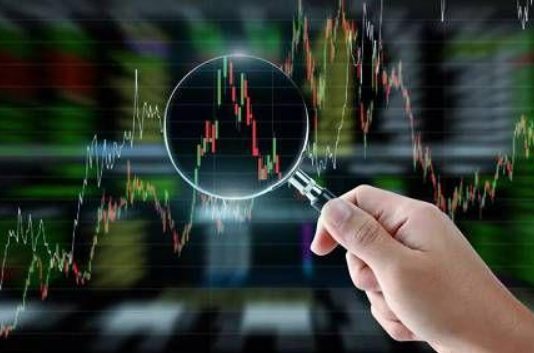中文摘要
2019年末爆发的新冠肺炎疫情严重影响了我国经济的发展,作为宏观经济“晴雨表”的股市,也受到了疫情的影响。
2020年2月3日股市暴跌,之后股市一直处于较大幅度的波动中。波动性是股市的基本属性,股市的融资和引导资源合理配置的功能都需要依靠股票价格的波动来实现,但是股市频繁大幅波动,会影响股市功能的有效发挥,对经济和社会发展均会产生不利的影响和冲击。基于此背景,本文研究新冠肺炎疫情对我国股市波动的影响。
本文在阅读和梳理突发公共卫生事件和股市波动的相关文献之后,根据前人的研究和相关理论,从投资者的角度分析了新冠肺炎疫情对股市波动的作用机理,并提出了研究假设。实证部分,首先建立向量自回归模型研究疫情对我国股市波动的整体影响;然后将沪深股市的所有上市公司按照A股和B股、不同行业以及机构持股比例不同进行分组,采用固定效应模型分析疫情对我国上市公司的异质性影响。通过以上实证分析,得出的主要结论有:
1.新冠肺炎疫情对我国股市整体波动存在正向影响,加剧了股市波动。方差分解的结果显示疫情对于股市波动的贡献率较低,时变性研究表明疫情对股市波动的影响随着时间的推移逐渐减弱。
2.新冠肺炎疫情对我国上市公司的异质性影响研究表明,疫情对于不同行业和不同类型的上市公司的影响是不同的。疫情对于A股市场,信息服务业以及机构持股比例较大的公司冲击更大;对于B股市场、医药制造业和机构持股比例较小的公司影响更小。
最后,根据理论分析和实证分析,得出本文的研究结论和政策建议。
关键词 : 新冠肺炎疫情,股市波动,异质性影响。
Abstract
The COVID-19 that broke out at the end of 2019 has severely affected thedevelopment of my country's economy. The stock market, which is a "barometer" ofthe macro economy, has also been affected by the epidemic. The stock marketplummeted on February 3, 2020, and the stock market has been in a relatively largerange of volatility since then. Volatility is the basic attribute and characteristic of thestock market. The functions of the stock market for financing and guiding the rationalallocation of resources need to be realized by the fluctuation of stock prices. However,frequent and large fluctuations of the stock market will affect the effective functioningof the stock market, which will affect the economic and social development. Willproduce adverse effects and shocks. Based on this background, this article studies theimpact of the COVID-19 on the volatility of my country's stock market.
After reading and sorting out relevant literature on public health emergencies andstock market fluctuations, this article analyzes the mechanism of the COVID-19 onstock market fluctuations from the perspective of investors based on previous researchand related theories, and puts forward research hypotheses. In the empirical part, firstestablish a vector autoregressive model to study the overall impact of the epidemic onthe volatility of my country's stock market; then group all listed companies in theShanghai and Shenzhen stock markets according to A-shares and B-shares, differentindustries and institutions, and adopt a fixed-effect model. Analyze the heterogeneousimpact of the epidemic on listed companies in my country. Through the above empiricalanalysis, the main conclusions drawn are:

1.The COVID-19 has a positive impact on the overall volatility of my country'sstock market, which has exacerbated the volatility of the stock market. The results ofvariance decomposition show that the epidemic’s contribution to stock market volatilityis low, and time-varying studies show that the impact of the epidemic on stock market volatility gradually weakens over time.
2. Research on the heterogeneous impact of the COVID-19 on listed companies inmy country has shown that the impact of the epidemic on different industries anddifferent types of listed companies is different. The epidemic has a greater impact onthe A-share market, the information service industry, and companies with largeinstitutional shareholdings; it has a smaller impact on the B-share market, thepharmaceutical manufacturing industry, and companies with small institutionalshareholdings.
Finally, based on theoretical analysis and empirical analysis, the researchconclusions and policy recommendations of this article are drawn.
Keywords : COVID-19, stock market volatility, heterogeneous influence。
第一章 绪论
1.1、研究背景与意义。
1.1.1、研究背景。
21世纪以来,接连爆发了如非典疫情等突发公共卫生事件。2003年的非典疫情,仅我国的经济损失就达到179亿美元。
2019年末我国武汉发生了新冠肺炎疫情,1月份全国大部分省市出现确诊病例,疫情蔓延到全国。到目前为止,国外疫情的蔓延还在加剧,确诊人数还在持续增长;在全国人民的共同努力下,国内疫情已基本得到控制。疫情严重影响了我国经济的发展,从供给端来看,因为疫情初期大规模隔离的措施,国内大多数企业停工停产,短期内企业经营压力变大;从需求端来看,消费、投资和出口短期内的下降幅度均超过20%。
2020年2月3日我国股市暴跌,主要指数均出现大幅下跌,当日超过3000只个股跌停。
2020年2月底,国外的疫情局势开始紧张,3月初美股的历史性熔断和其他国家股市的剧烈波动,也会影响我国股市。疫情的爆发会带来很多不确定性,使得风险变大,引起投资者情绪的变化,投资者会放弃高风险的股票等资产,转向风险较小的债券市场等,而且这种市场情绪传播迅速,容易形成羊群效应。为了应对股市的剧烈波动,为市场提供充足的流动性,我国政府势必会出台一些政策,给市场提供更多的资金,以稳定股市,经济政策的不确定性又进一步的影响了股市波动。
基于此背景,本文研究新冠肺炎疫情对我国股市波动的影响。正是由于股票价格稳定持续的波动,股市才能发挥其资源配置和融资的功能。疫情等突发事件会影响股市的正常运行,导致股市的异常波动,使得股市的功能不能有效发挥,并且会对宏观经济增长产生严重的负面影响。股市频繁大幅波动必然会削弱投资者的信心,引起恐慌,使得股市不能稳定发展。在极端情况下,股市频繁大幅波动可能会引发系统性危机,影响社会、经济等的稳定发展。研究新冠肺炎疫情对股市波动存在怎样的影响,对于建立健全预防此类事件的机制体系和减少此类事件对股市的负面影响具有重要的意义。
【由于本篇文章为硕士论文,如需全文请点击底部下载全文链接】
1.1.2、研究意
1.2、主要研究内容.
1.2.1、研究思路.
1.2.2、研究
1.3、可能的创新之处与不足
1.3.1 、可能的创新之处
1.3.2、文章的不足之处
第二章 理论概述与文献综述
2.1、突发公共卫生事件的理论概述.
2.1.1、突发公共卫生事.
2.1.2、突发公共卫生事件的相关理论
2.2、股市波动的理论概述.
2.2.1、股市波动的定义
2.3、股市波动的文献综述
2.4、突发公共卫生事件对股市影响的文献综述.
2.5、简要述评.
第三章 新冠肺炎疫情对 股市波动影响的机理分析.
3.1、机理分析.
3.2、研究假设
第四章 新冠肺炎疫情对我国股市整体影响的实证分析
4.1、研究设计
4.1.1、样本选取.
4.1.2、变量选取与数据来源.
4.1.3、模型设计.
4.2、数据的统计分析
4.2.1、数据描述性统计.
4.2.2、平稳性检验.
4.3、实证分析.
4.3.1、模型构建.
4.3.2、脉冲响应分析.
4.3.3、方差分解.
4.3.4、新冠肺炎疫情对股市波动影响的时变性特征.
第五章 新冠肺炎疫情对上市公司的异质性影响研究
5.1.1、 样本选取.
5.1.2、变量选取与数据来源.
5.2、数据的统计分析
5.2.2、 单位根检验
5.3、模型选择与设计
5.4、全样本的实证结果与分析
5.5.1、对A股和B股的影响分析.
5.5.2、对不同行业的影响分析.
5.5.3、对机构投资者占比高低的影响分析
5.6、稳健性检验.
第六章 研究结论
本文研究了新冠肺炎疫情对我国股市波动的影响。研究中的时间窗口选择2020年1月13日至2020年5月29日,共包括90个有效交易日。股票市场整体层面,选取沪深300指数,运用VAR模型研究了时间窗口内疫情对沪深300指数波动的影响,并进一步将时间窗口分为四个阶段,研究了疫情对于指数波动影响的时变性特征;异质性影响研究层面,选择沪深股市所有的上市公司,并按照A股和B股、不同行业和机构持股比例的不同进行分组,建立双向固定效应模型,实证分析了疫情对于我国上市公司的异质性影响。
本文得出的主要结论如下:
(1)新冠肺炎疫情对我国股市整体波动存在正向影响,加剧了股市波动。
但根据沪深300指数波动的方差分解结果可以看到,在整个时间窗口内疫情对于股市波动的贡献率并不高,这主要是由于疫情对股市波动的影响短期的,疫情爆发初期,投资者产生了恐慌等负面情绪,但随着疫情得到控制,利好消息的传来,投资者情绪逐渐恢复,疫情对于股市波动的影响也随着下降。疫情对股市波动影响的时变性研究也很好的证明了这一点,第一阶段疫情对于股市波动的贡献率达到36%,逐渐减弱,第四阶段仅为0.4%。
(2)疫情对于A股市场波动影响大于B股市场,主要是因为:国外疫情爆发晚于国内,国内投资者的恐慌等负面情绪更为严重;B股市场和A股市场信息不对称,相比A股市场的投资者,B股市场的投资者拥有的私人信息更少,在A股市场中,部分投资者拥有获取私人信息的各种有利途径和便利条件,从而使用私人信息在股市中频繁交易,导致股市剧烈波动;B股市场的整体规模、流动性、交易量和交易活跃度等均低于A股市场。
(3)疫情对于医药制造业股市波动的影响较低,主要是因为疫情爆发后除与防疫相关的医疗用品外,对整个医疗行业的需求减少,医药制造业的销售额下降。网上零售、生鲜电商、在线教育以及远程办公等依托于信息服务业的行业的发展,使得公众对于这类行业的需求激增,同时投资者产生了较好的增长预期,使得这类行业的股票波动增加。短期内,疫情对住宿和餐饮业,交通运输、仓储和邮政业以及批发和零售业的影响较大,股市波动剧烈,长期影响没有显着的差异。
(4)疫情对于机构持股比例较大的公司影响更大,主要是因为:我国机构投资者在股市中占比较小,且类型较为单一,机构投资者稳定股市的作用受到限制;疫情期间基金公司的频繁操作,导致机构持股比例大的公司股票波动更为剧烈;机构投资者存在利用个人投资者的投资情绪和行为金融偏差等,来博取最大化收益的行为,频繁的增仓和减仓加剧了股市波动。
参考文献.
[1] Benson Charlote and Clay Edward U nderst anding the Ecanamic and F inancial Impacts ofNatu al Disaster s[M]. bd;, dm; mw,2004.
[2] Chairman B, Fama E F. EFFICIENT CAPITAL MARKETS: A REVIEW OF THEORY ANDEMPIRICAL WORKt[J]. The Journal of F inance, 1970
[3] Gunther Capelle-B1ancard and Marie Aude Laguna H aw does the stock m arket respand tochemical disastxs?[J] J oumnal of Environmental Economics and Managem ent 2009, 59(2) :192-205 .
[4] Fama E F, Schw entG W. Asset retuns and inflati on[J]. J oumal of Financial Economics, 1977,5(2):1 15-146.
[5] Faugere C, ShawkyH A . Volatility andInstitutional Inve stor H oldings in a D ecliningMarket:A Studty ofN asdaq duing the Year 2000[]. Journal of Applied Finance, 2003, 13.
[6] Gary Koop and MHashem P esman and Simon M. P otr. Impulse response analysis in nonlinear multivari ate m ode1s[J]. Jounal of Econom etrics 1996, 74(1): 119-147.
[7] KALOK CHAN andALBERT J MENKV ELD and ZHISHU YANG. Information Asynmetryand AssetPrices: Evidence from the China Foreig1 Share Discount[J] The Jounal of Finance, .2008, 63(1): 159-196.
[8] Ling Cen and Hai Lu and Liyan Yang Investor S entim ent, Disageement, and the Breatth-Retun Relationship[] Managem ent Science, 2013, 59(5)
[9] Markowitz H Potfoli o Selection[].Jounal of F inance,1952,7(01);77-91.
[10] MartTopcu and Om er Serkan Gulal The impact of COVID- 19 on emergng stock m arkets[].Finance Res ear chLetters 2020, 36.
[11] Macr oeconomics and Reality[J] Ecanometrica, 1980, 48(1) : 1-48.
[12] Prospect Theory: An Analyss of D eci si an under Rik[J] Econometica, 1979, 47(2) :263-291.
[13] Richard D. Sm ith Respandi ng to global infecti ous di se ase outbr eaks: Lessons fr am SARS onthe role of ni sk per ception, camm unic ation and m anagem ent[J]. S ocial Science & Medi cine,2006, 63(12) : 3113-3123.
[14] Sergio Focard and Sivano Cincoti and Michele Marchesi. Self- arganization and marketcrashes[]. Journa1 of Econonic B ehavior and Organiz ation, 2002, 49(2) : 241-267.
[15] Sergio Focardi and Silvano Cincoti and Michele Marchesi . Self- arganizati on and m arketcrashes[] Journal of Economic B ehavior and Organizati on 2002, 49(2) : 241-267.
[16] Srinivas Nippani and Kenneth M. Washer SARS: a nan-event for affected countries stockmarkets![J]. Applied Financial Economics 2004, 14(15) : 105-110.
[17]罗伯特希斯危机管理[M]北京中信出版社,2001.
[18]蒋骁我国股市是否是强式有效市场的实证研究[]经济师,200 1(10);36-37.
[19]刘华基于有效市场理论的我国股市效率研究[J]财会通讯,201 2Q23):45-47.